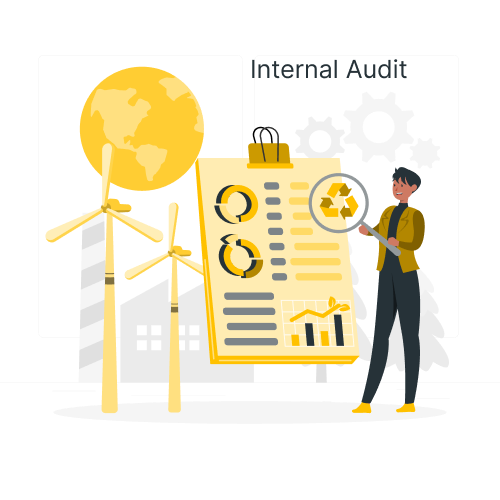
Internal audit is a crucial function of any organization that helps it to ensure that its operations and processes are in line with the defined policies and procedures. Internal auditors provide valuable insights and recommendations to management to improve internal controls, risk management, and governance. If you’re preparing for an internal audit interview, you might be wondering what questions you can expect to be asked. In this blog post, we’ll discuss some of the most commonly asked internal audit interview questions.
- What is your understanding of internal audit?
This is a fundamental question that assesses your understanding of internal audit’s purpose, scope, and objective. You can explain that internal audit is an independent, objective assurance and consulting activity designed to add value and improve an organization’s operations.
- What are the types of internal audit?
There are various types of internal audit, such as financial audit, compliance audit, operational audit, and information systems audit. You can explain that financial audit focuses on financial statements’ accuracy, while compliance audit verifies compliance with legal and regulatory requirements. Operational audit examines an organization’s processes, and information systems audit assesses the effectiveness of information technology controls.
- What is risk-based internal auditing?
Risk-based internal auditing is an approach that focuses on an organization’s risks and prioritizes audits based on the level of risk. You can explain that risk-based internal auditing involves identifying and assessing risks, developing audit plans, executing audits, and reporting audit findings and recommendations to management.
- What is the role of internal audit in risk management?
The role of internal audit in risk management is to identify, assess, and manage risks that may impact an organization’s ability to achieve its objectives. You can explain that internal audit helps management to identify and evaluate risks, develop risk management strategies, and monitor risk mitigation activities.
- What is your experience in conducting audits?
This question aims to assess your audit experience and your ability to plan, execute and report audit findings. You can explain your audit experience in terms of the number of audits conducted, industries, and types of audits performed.
- How do you ensure that audit findings are implemented?
This question assesses your ability to track audit findings and recommendations and ensure that they are implemented. You can explain that you follow up on audit findings and recommendations to ensure that management has taken appropriate corrective actions.
- What is your experience with internal control?
Internal controls are processes that an organization puts in place to achieve its objectives. You can explain your experience in assessing internal controls and providing recommendations to management to strengthen them.
- How do you handle difficult stakeholders during an audit?
This question assesses your ability to manage stakeholders’ expectations during an audit. You can explain that you maintain open communication with stakeholders, explain the audit process, and address any concerns they may have.
Preparing for an internal audit interview requires a solid understanding of internal audit’s purpose, scope, and objective, as well as the different types of audits and risk-based internal auditing. Being able to demonstrate your audit experience and your ability to plan, execute and report audit findings, assess internal controls, manage stakeholders, and track audit findings to ensure implementation is crucial. By answering the above-mentioned commonly asked internal audit interview questions, you’ll be well-prepared to impress your interviewer and land your dream job.
ten more questions that you may encounter in an internal audit interview:
- What are some common challenges that you face during an audit, and how do you overcome them?
- How do you ensure that you remain objective and independent during an audit?
- Can you explain your experience with risk assessment and management?
- What is your experience in using data analytics in audits?
- How do you ensure that your audit work complies with professional standards and regulatory requirements?
- What is your experience with audit software tools, such as ACL or IDEA?
- Can you explain your experience in conducting fraud investigations?
- How do you ensure that your audit findings are communicated effectively to management?
- Can you explain your experience in working with external auditors or regulators?
- What do you see as the future trends in internal auditing, and how do you stay up-to-date with them?
Leave a Reply